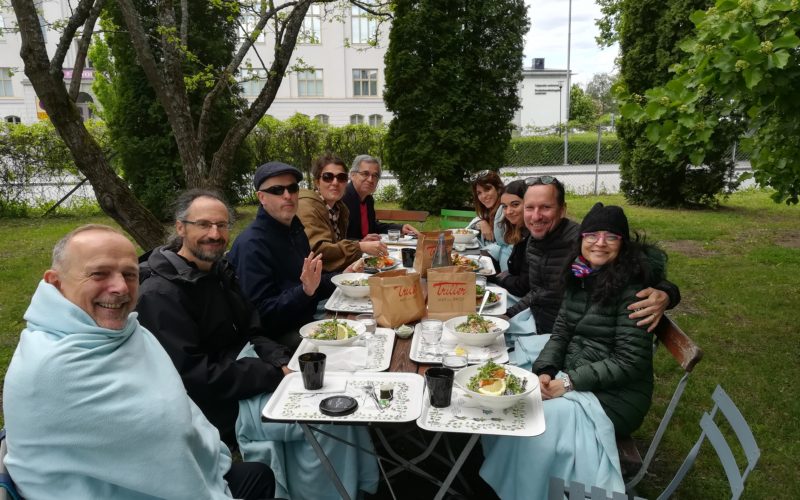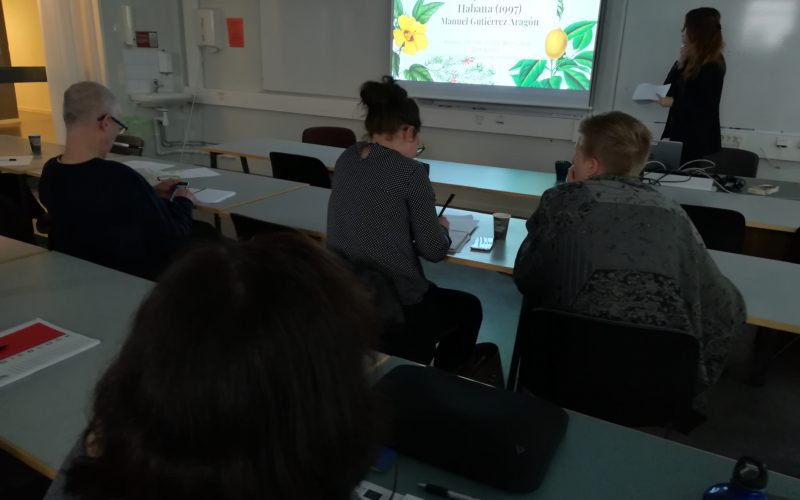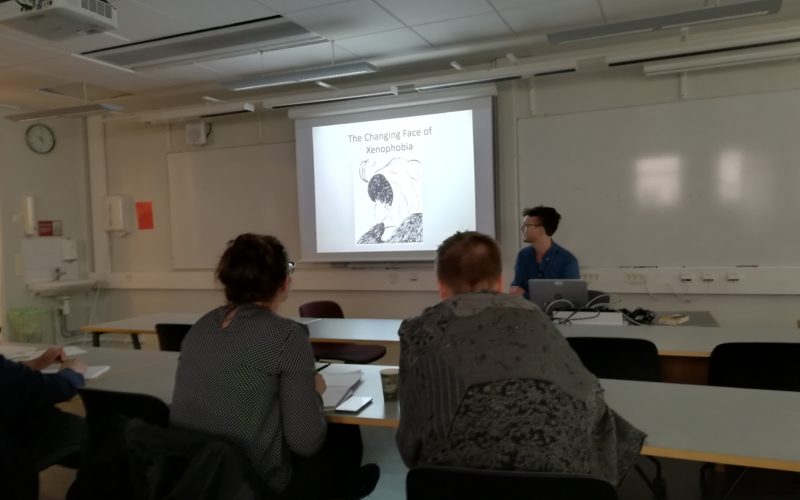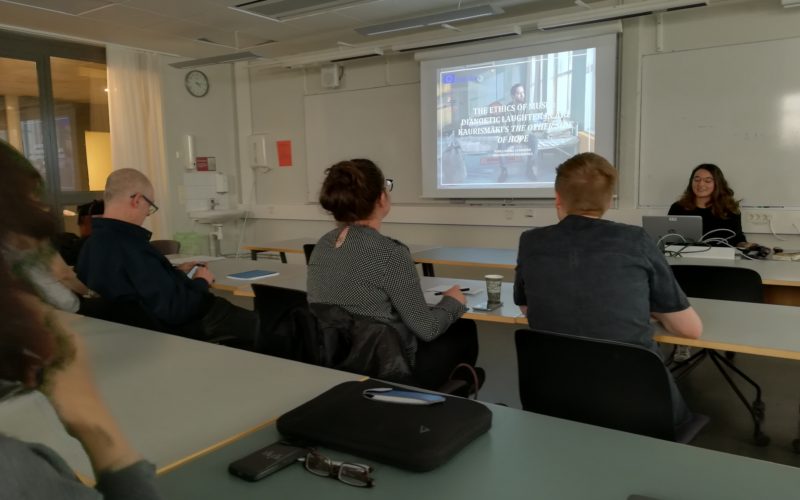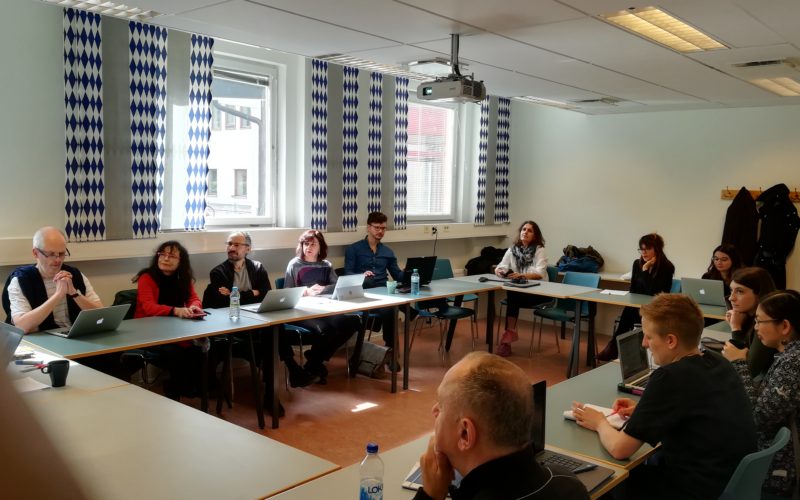— Teaching and Training Event “Seminar on Hospitality in Movies”, University of Uppsala, May 27-29, 2019
The Teaching and Training Event “Seminar on Hospitality in Movies” took place at the University of Uppsala (Sweden) May 27th 29th, 2019, and was hosted by Professor Markus Heide. Project members gathered at Uppsala to benefit from a stimulating sharing of ideas, lectures, discussions, screenings, Q&As and interaction among audiences of different ages, origins and educational profiles. The necessity of being trained was the pivotal motivation of an event which fostered a unique opportunity to learn and experience collective knowledges and challenges. Meanwhile, the organisation of the event, carefully put together by Prof. Heide, favoured the interaction with educational and local communities in Uppsala to guarantee reaching out to different communities which can converse with or benefit from the project and its intellectual outputs. There was an audience of 48 people from different ages, nationalities and affiliations, amongst them, master students from University of Graz, University of Uppsala, doctoral students from University of Salamanca and University of Valladolid, Uppsala professors, a professor from Tarleton State University (United States), as well as two documentary film makers.
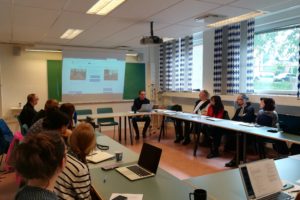
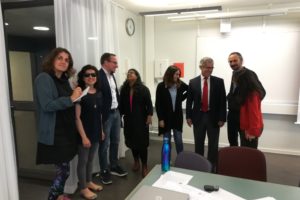
The seminar started with the introduction of the project to students at University of Uppsala. The intellectual outputs “Syllabus of film analysis” (Intellectual Output 1), and one of the chapters in the MOOC “Hospitality and European Films” (Intellectual Output 2) were presented and there was a fruitful exchange of feedback among all the attendees. The exchange of ideas continued under the slogan “we learn from you and you learn from us” and some MA students at the University of Uppsala presented their researche to project members in an open venue to see how the theoretical and practical background of “Hospitality and European Film” could assist them in their question making and problem solving. The stimulating discussions ended with PhD candidates from partner universities outside Uppsala giving talks about materials in the Intellectual Output 1. This planning guaranteed the dissemination of project materials and enhanced the establishment of fields of academic cooperation among students at partner universities, one of the main goals the Teaching and Training activity set for itself.
May 28th relied on the discussions of the previous day to introduce a comparative approach around the issues of Hospitality and European Film. Prof. Jesús Velasco (Tarleton State University, Texas, USA) delivered a plenary lecture on how to assess the dangers of fake news drawing on the US-Mexican border, the open hostility to immigrants in political rhetoric, and its cultural and media representations. Professors Martin O’Shaughnessy (Nottingham Trent U) and Ana María Manzanas Calvo (U of Salamanca) then took on Prof. Velasco’s conference and talked about hospitality and film through analysing different cinematographic case-studies. These comparative perspectives continued in the following screening and Q&As held with Kavita Dasgupta and her film Welcome Out (2017), and Naures Atto and her feature “POMEGRANATE: Voices of Sinjar” (to be released). Prof. Heide’s selection of the two documentaries proved to be extremely useful and well crafted. Welcome Out offered different versions and variations of hospitality to the LGTBQ+ community in Uppsala, and focused on the testimonies of the LGTBQ+ community who have found asylum in Sweden. “POMEGRANATE: Voices of Sinjar” was a moving testimony of three Yazidi women who have witnessed, suffered and escaped the Yazidi genocide committed by ISIS since August 2014 in Sinjar, northern Iraq. The day concluded with the screening of a preview of “Documentary on Migration and Music in contemporary Europe,” one of the intellectual products of the project that is directed by Michel Gasco and Parisa Delshad. The screening of the three documentaries and the subsequent Q&A foregrounded the possibilities to respond socially and educationally to issues such as LGTBQ+ challenges and rights among refugees in the EU, the traumas of war in Northern Iraq, and the role that EU and its citizens can play in assessing different situations, responding accordingly, and coming up with complex solutions to complex questions and dilemmas. Once again, the three documentary films underlined the immediate response to specific and individual situations, the fostering of empathy, and the shifting of the focus of attention, from the self to the Other.
The Teaching and Training event ended with a day devoted to the assessment of the Results of the seminar, an evaluation of the project’s long-term objectives as per the discussion among students and with film directors and setting the basis for new ways of collaboration between the partner institutions, such as the drafting of Erasmus agreements for specific areas (Uppsala, Graz and Salamanca), the fostering of teaching mobility (Salamanca and Nottingham), and the planning for activities involving students at Salamanca, Maynooth and Valladolid. The presentation of the final results of the training and teaching activity in the final round table foregrounded the importance of film analysis, film theory and filmic language to deal with the infinite varieties and subtleties of migration and individual stories. The different layers of the activity and the different actors, students and professors as well as documentary film directors, attest to the versatility of the project, the multiple dimensions it engages, and the multiple possibilities for its dissemination. The three Intellectual Outputs of the project are a perfect fit for responding to the challenges of migration and its representation in contemporary society. The final remarks by Project Leader Prof. Ana María Manzanas Calvo summarised the present and future recurrence of the project, “our contemporary society demands this project and the outputs that can be created throughout our collective efforts”.

